Over two years ago we started a Learning Futures Collaborative focusing on the role of Artificial Intelligence in Education (The AI in Ed LFC). I like to emphasize the fact that we started the LFC BEFORE ChatGPT was released into the world. We were ahead of the curve. We were a relatively small group when we began but became incredibly popular once ChatGPT appeared :-). I co-lead the group (initially with Sean Leahy) and more recently with Jennifer Werner.
The AI in Ed LFC has been one of the most amazing groups I have had the pleasure of working with. We have met almost every Friday for the past two years and this is one meeting that everybody looks forward to – which given how people often feel about meetings (especially on Fridays) just goes to show how much fun we have together.
Apart from fun this LFC has also had a transformational impact on the college overall, particularly as generative AI took over our collective consciousness. We have done a LOT in a relatively short time, though in a somewhat unscripted, open-ended way. That said, it is not often that we get a chance to step back and reflect on all that the LFC has achieved.
No surprise therefore that when I got a chance to speak at Empower 24: ASU’s IT Professionals day, Jennifer and I took this as an opportunity to do exactly that—to take a moment to curate all our various activities and achievements and share it with a wider ASU audience.
One of the main themes of the presentation, beyond the stories embedded in the individual slides, was about how driving transformative change and innovation within a large academic institution like a college or university requires a systemic, coordinated approach that engages all stakeholders rather than isolated, individual efforts. While the contributions of passionate faculty, staff and students are invaluable seeds, lasting institutional change demands a unified strategy that aligns leadership, curricula, research, outreach, and support structures. Though at some level this is obvious, it is difficult to pull off, particularly by a rag-tag team that is the AI in Ed LFC. The fact that we have managed to do so much with minimal resources and zero power speaks volumes to the people in the team, their passion and commitment.
An excellent example of a systemic approach towards thinking about the role of gen AI within MLFTC was our how we approached the AI Innovation Challenge, ASU’s collaboration with OpenAI. The challenge asked individuals to submit proposals for ChatGPT Enterprise license(s). Jennifer and I discussed and argued that it made much more sense for us to apply as a college for a number of licenses that would then be made available to teams across the college. We knew there were individuals who were at the cutting edge of using gen AI but we wanted this to be accessible more widely. So we applied for and received (thank you Enterprise Technology) 30 licenses in the spring semester. It has been amazing to see just how creatively different groups and teams have taken this on – more details in this report: Innovation OpenAI Licenses at MLFTC (link to pdf).
I am including below the slides from the talk followed by a short description of what I spoke about. A list of all the people involved in the LFC is given on slide 4.
Now onto the description (generated by Claude.AI, and lightly edited by me).
My presentation started by posing a key question that guides our efforts: “How can artificial intelligence in education communities ensure that future technologies are human-centered and humanist in their design, implementation, and interpretation?” This question reflects our commitment to embracing GenAI while maintaining a strong focus on humanistic values.
I listed the members of the MLFTC team working on this GenAI initiative, which includes my faculty colleagues as well as staff and students from various departments and programs across the college.
At MLFTC, our efforts to integrate GenAI span several key areas:
- Curriculum Development: We are integrating GenAI into existing courses, developing new courses and programs centered around AI, and creating an “AI Playground” for exploration.
- Outreach: My colleagues and I engage in podcasts, workshops, webinars, invited talks, keynotes, and events to raise awareness and understanding of GenAI’s role in education.
- Research: Ongoing research by our faculty and students explores critical topics such as teacher knowledge and GenAI, student perceptions of GenAI, and GenAI’s impact on creativity and learning.
- Faculty Support: We provide resources and support to MLFTC faculty, including a “Generative AI Series” and the distribution of 30 Open AI licenses across various college units.
- Building Networks: MLFTC collaborates with internal and external partners, such as the Learning Engineering Institute, ASU Prep, the Center for Principled Innovation and Education, and others.
So far, we have achieved notable successes, including 14 journal articles, over 30 presentations and workshops, 2 grant partnerships, 2 AI in education websites, 6 GenAI faculty/student/staff sessions, and the distribution of 30 Open AI licenses across 12+ MLFTC units.
My slides provided examples of how GenAI is being utilized at MLFTC for automating administrative tasks, enhancing educational programs, supporting data analysis, developing custom AI tools, and fostering creative thinking.
In summary, my presentation showcased MLFTC’s comprehensive and systemic approach to integrating GenAI in education. We are committed to embracing emerging technologies while prioritizing human-centered and humanist principles that ensure GenAI supports and enhances learning for all.
Some photographs from the convening.
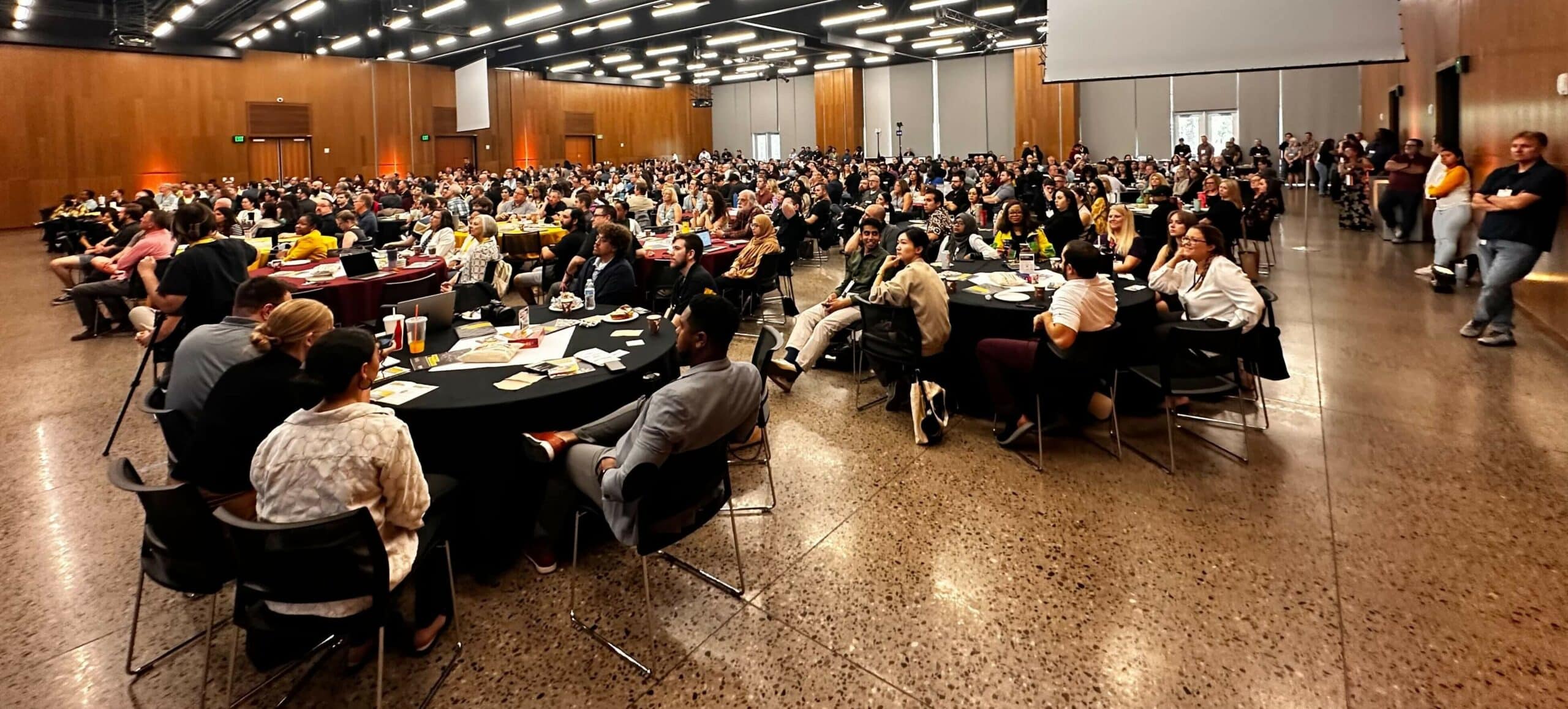
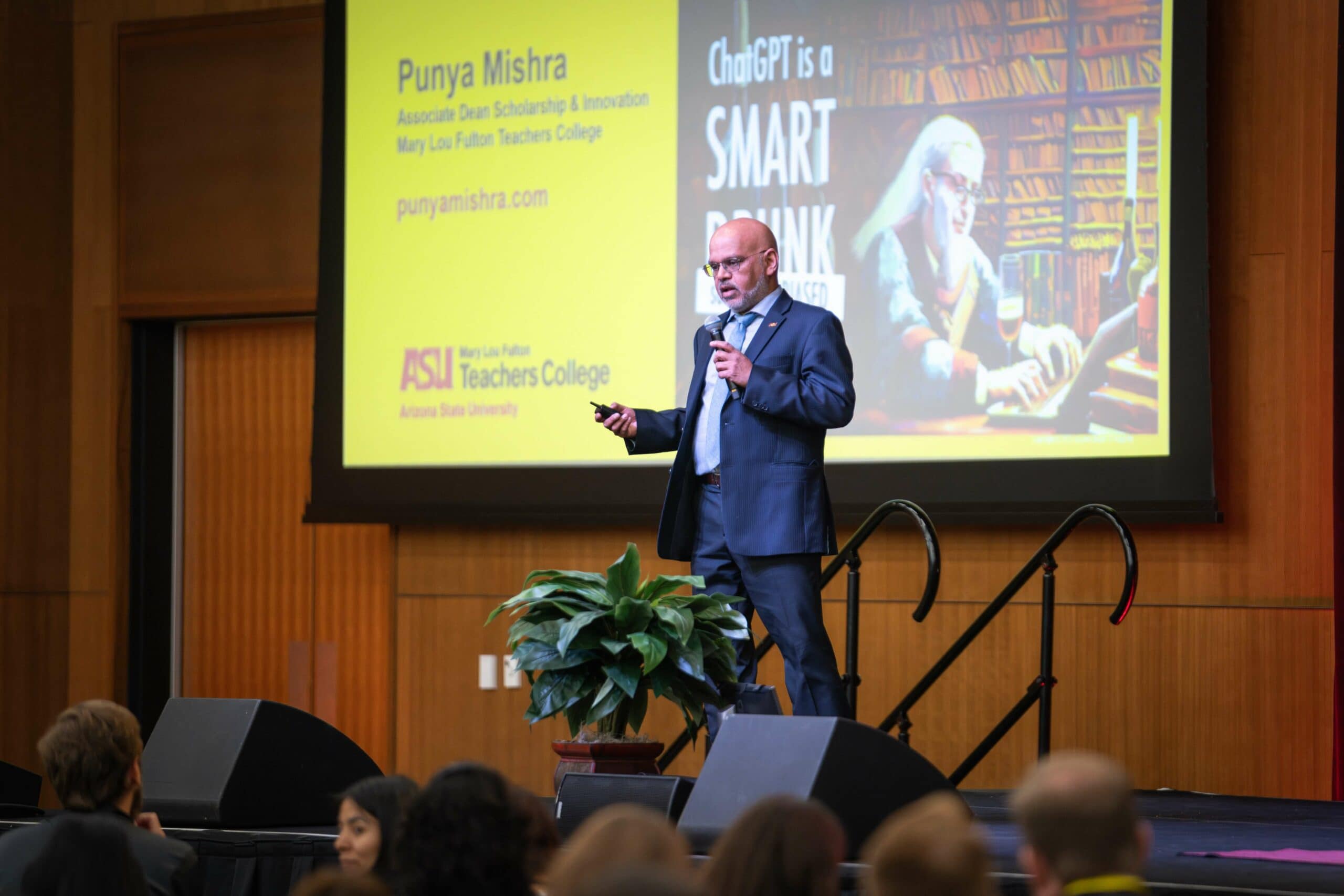
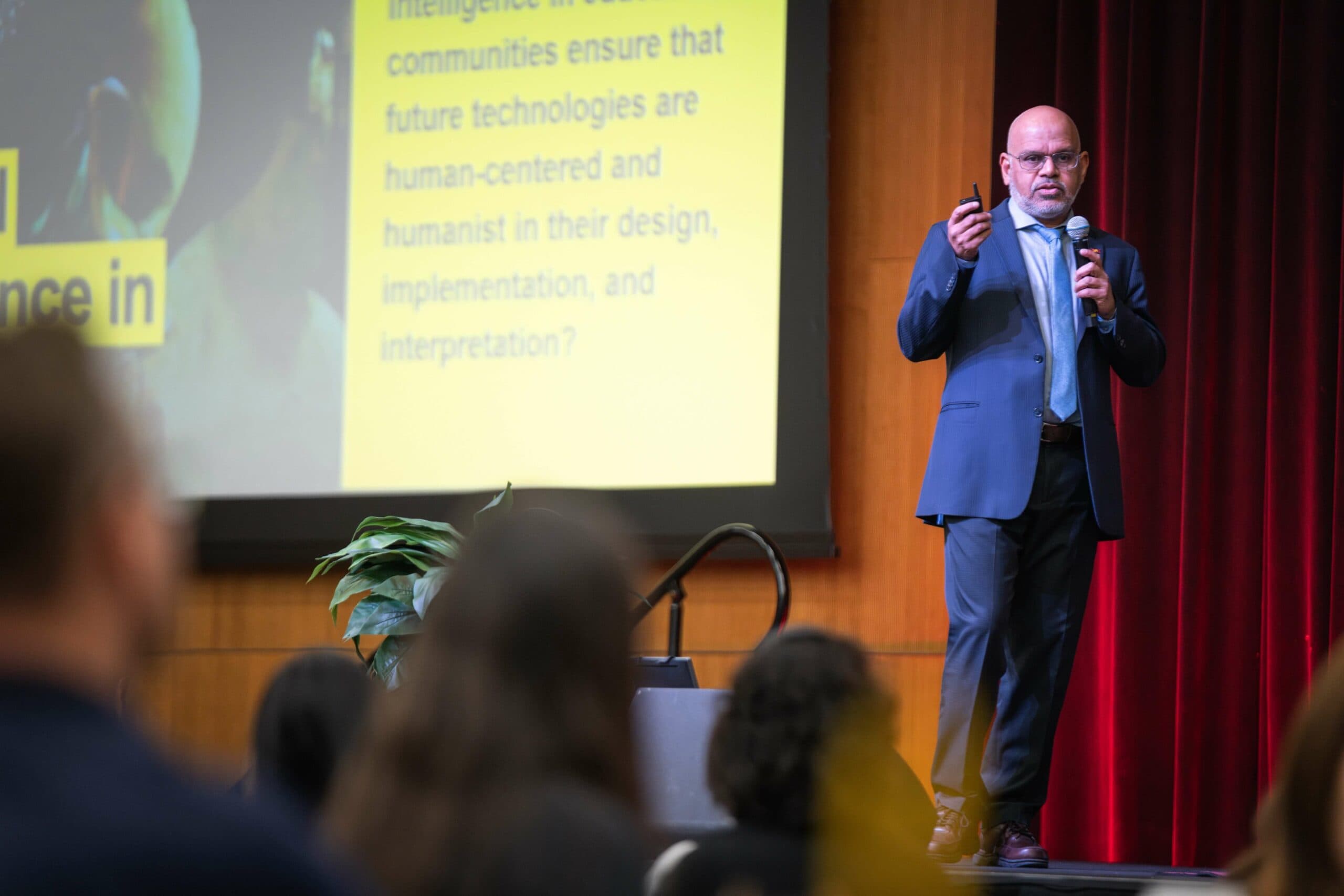

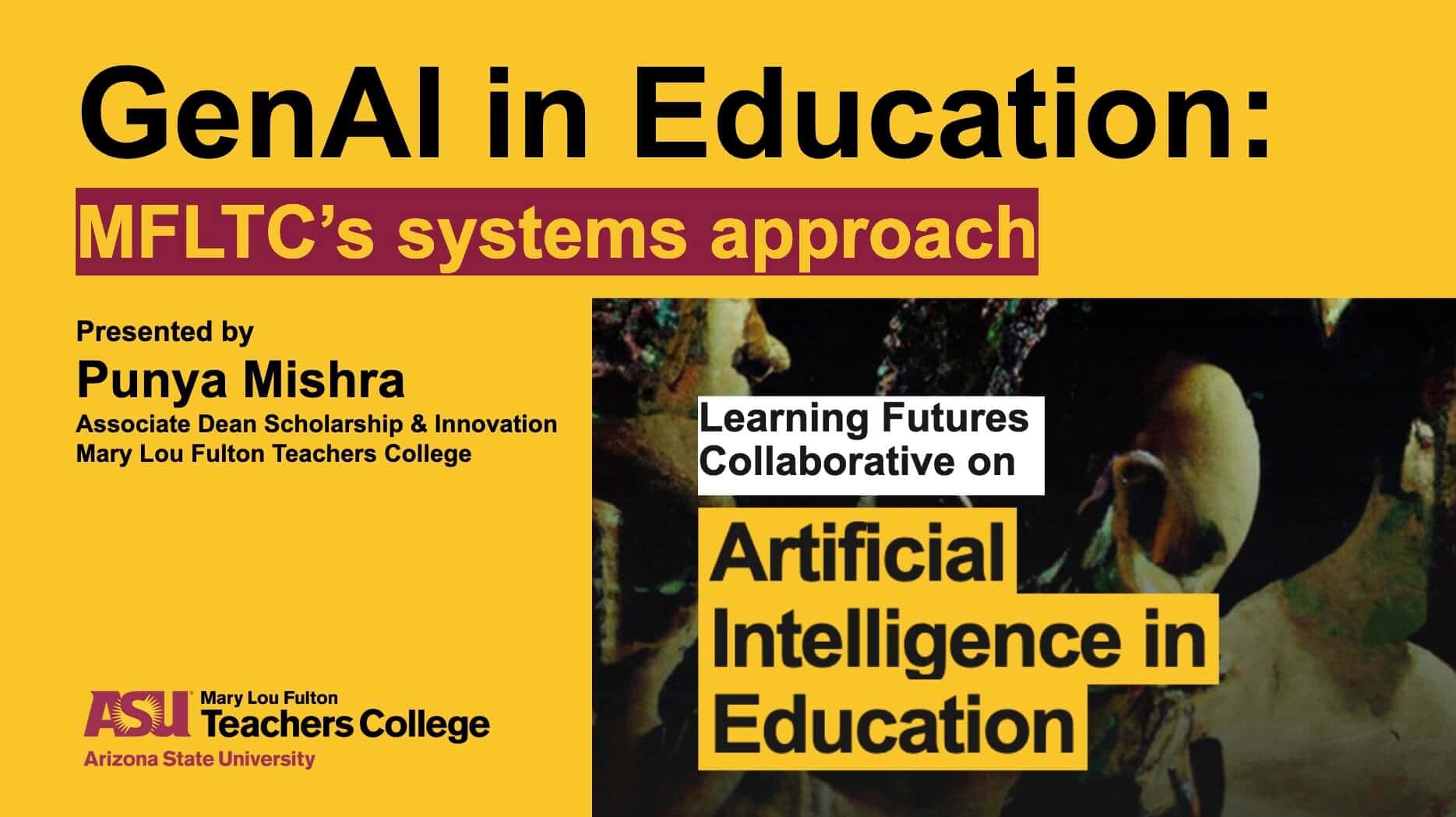
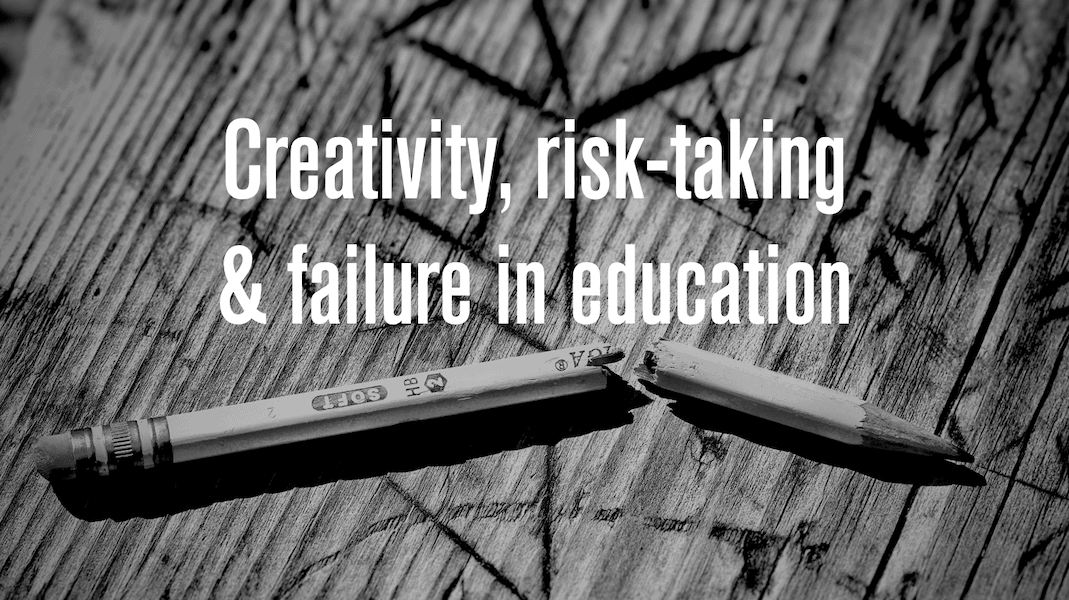
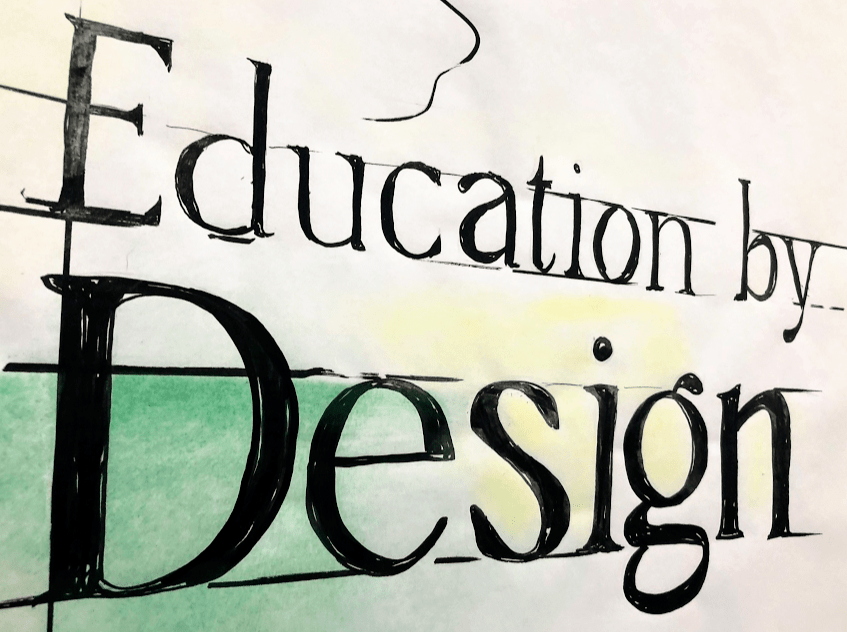
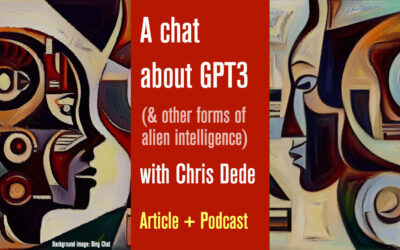

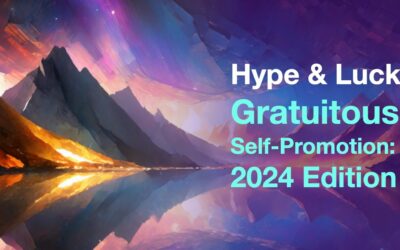
0 Comments